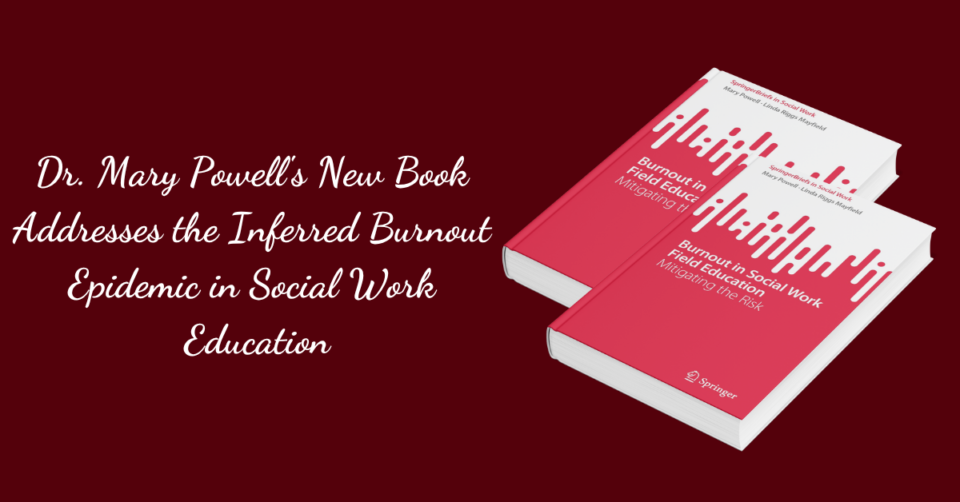New York, NY – 2025 Burnout among the helping professions has been a subject of debate for a long time, but up until this point, the initial academic and fieldwork phases of social work education have been under-investigated. In her timely new book, Burnout in Social Work Field Education: Mitigating the Risk, Dr. Mary Powell initiates a long-overdue conversation on student well-being, role clarity, and long-term professional resilience.
Published by Springer and co-authored with Dr. Linda Riggs Mayfield, this compact but thoroughly researched book is the first of its type to focus on burnout as it arises in the early years of professional social work education. Drawn from Dr. Powell’s award-winning doctoral dissertation, the book shares empirical data gathered in a study of more than 200 MSW students in clinical field placements and provides action-oriented approaches to combat emotional exhaustion before it becomes entrenched.
Decades have passed and burnout has still been addressed as if it occurs ‘later,'” reports Dr. Powell, a licensed clinical social worker, psychoanalyst, and educator. “Actually, it generally starts when students first experience the emotional stresses of fieldwork when they want to help but don’t have the support and role definition to succeed.
The text revolves around three key concerns: burnout, role ambiguity, and coping. Using both current research and clinical perspectives, Dr. Powell demonstrates how institutional design, ambiguous expectations, and uneven mentorship can cause burnout even before the students graduate. Through a comparison of the burnout experience of experienced professionals and field interns, the book presents the issue in its complexity and urgency.
Dr. Powell’s professional background is thoroughly interwoven within this project. Her initial career as an outpatient mental health provider, followed by supervision of MSW interns for many years, uncovered an alarming trend: bright, dedicated students were demonstrating signs of emotional burnout long before licensure. Her curiosity about coping theory and self-care along with intense scholarly research blossomed into a groundbreaking dissertation that won Fordham University’s Reverend Dr. Nicholas Langenfeld Award for Most Outstanding PhD Dissertation.
“Self-knowledge and care of self were central principles in our own education as psychoanalysts,” she says. “I wanted to provide the same basis for students in social work. This book is my contribution to that dialogue.”
The book is designed as a teaching instrument as well as a working guide. Instructors, field educators, and administrators will discover research-supported suggestions to effect change at the organizational level the most powerful predictor of burnout decrease. Readers are walked through cognitive coping models and learn about evidence-based strategies that work in actual academic and clinical environments.
Burnout in Social Work Field Education: Mitigating the Risk is more than a book it’s an alarm. It calls on educators to rethink the design of field experiences and put the emotional resilience of students on par with their clinical skills.
Now available through Springer and fine bookstores, the book is perfect for course adoption in graduate programs and required reading for those molding the future of the social work profession.
For more details or to buy:
Amazon Link
Publisher: Springer Nature Switzerland AG
ISBN: 978-3-031-45921-4 (Print), 978-3-031-45922-1 (eBook)
Press Contact:
Dr. Mary Powell
Book Available: Springer Nature Switzerland AG

